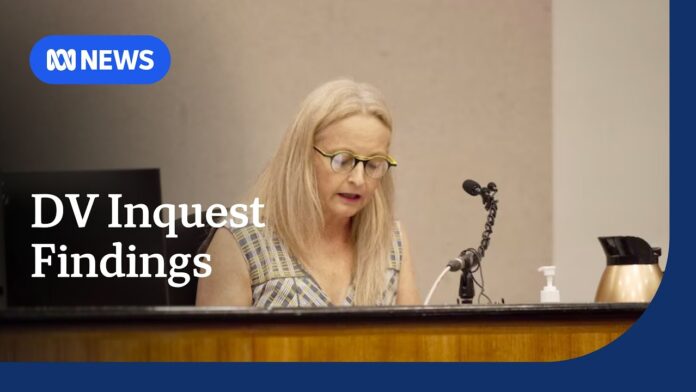Despite the Northern Territory Coroner’s urgent call for action, both federal and NT governments remain silent on committing additional funding to address domestic violence services in the region
Domestic violence advocates are demanding immediate government action to fund essential services in the Northern Territory following a landmark coronial inquest. The inquest, which examined the tragic domestic violence deaths of four Aboriginal women, revealed alarming statistics about the region’s crisis and called for urgent action to prevent further violence. However, frontline workers are frustrated by a lack of immediate financial commitment from both the Northern Territory and federal governments.
On Monday, NT Coroner Elisabeth Armitage delivered 35 recommendations after investigating the deaths of Kumarn Rubuntja, Kumanjayi Haywood, Ngeygo Ragurrk, and Miss Yunupiŋu. The coroner’s recommendations include the establishment of critical services such as men’s prison behaviour programs, Aboriginal interpreter services, family mediators, and additional women’s shelters, all of which require immediate funding.
“We know what needs to be done, and there is no reason for any further delay before action is taken,” Coroner Armitage said, highlighting the urgency of the situation.
Despite this call for action, neither the federal nor the NT governments have committed to allocating more funding. The NT government, already grappling with over $11 billion in debt, has promised $180 million in funding but stated that it needs more time to determine how to allocate these funds. Meanwhile, domestic violence workers argue that a clear plan for implementing the coroner’s recommendations already exists, and the funding is urgently needed.
Kristine McConnell, from the Darwin women’s shelter Dawn House, expressed frustration over the lack of response. “We need a lot more money,” she said. “We need it now — not in six months, not in 12 months — we need it today.”
The Northern Territory faces domestic violence rates that are more than three times the national average. The coroner’s report revealed that domestic violence is costing the NT community an estimated $606 million each year. McConnell and other frontline workers contend that the sector has long been underfunded, with demand far outstripping resources.
Alice Springs domestic violence researcher Chay Brown also voiced concerns, stating that the region’s response to domestic violence has never been adequately funded. “The NT receives a small fraction of federal funding due to its relatively small population, but it has the worst domestic violence rates in Australia,” Dr Brown explained. “It’s more expensive to deliver services here, and national responses have often been either inappropriate or culturally insensitive.”
Dr Brown added that the NT’s specialist domestic violence sector has long advocated for needs-based funding that reflects the unique challenges and demands in the region.
With domestic violence continuing to devastate communities across the Northern Territory, the urgency for increased investment in services is clear. Frontline workers, local advocates, and survivors are calling for the government to honour the coroner’s recommendations and provide immediate funding to address the crisis.
Without a swift response, there is fear that more lives will be lost to the ongoing epidemic of domestic violence, and the NT will continue to face the costs, both human and financial, of inaction.
